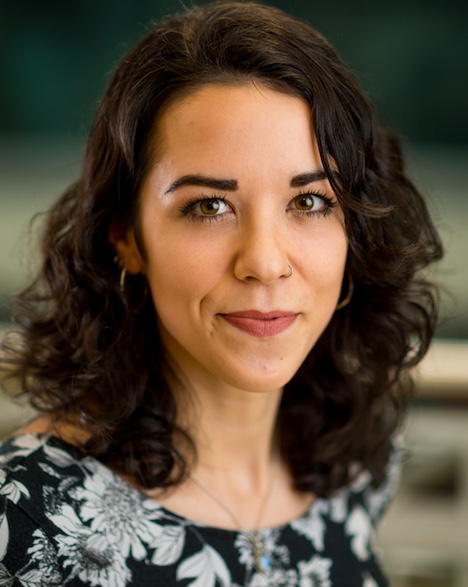Alicia Peel and Meg Skelton describe their experiences of the PhD viva in the UK, having both passed theirs last year.
What is a viva?
A viva is an examination of your thesis, where you are asked questions to demonstrate that your work meets the requirements of the PhD. This includes showing that you understand the methods, you are able to critically assess theory and results, and can justify the decisions that you made. Your examiners will have read your thesis ahead of time and prepared some general and some chapter-specific questions. The viva usually lasts for 2-3 hours, with your examiners going through the chapters in order, taking it in turns to ask their questions. Usually students have two examiners who are experts in fields that overlap with your PhD topic, and typically are suggested by yourself and your supervisors months prior to your viva date. You might have met them at a conference, followed their work on social media, or, at some universities, one of your examiners may be from your department. The possible outcomes following your viva include ‘pass with no corrections’, ‘pass subject to minor corrections’ (these could be as minor as edits to terminology used and correcting typos) and ‘pass subject to major corrections’. Resubmission and resitting the viva are possible but should not occur given you and your supervisors have ensured throughout your PhD (e.g. your upgrade and regular reviews) that you are producing work suitable to be awarded a PhD.
How did you prepare?
Alicia: The best way I found to prepare was to read through the thesis and question myself on the evidence I had given, results found and conclusions drawn. For important pieces of background information that I had cited, I thought more critically about what else it might tell us about the topic, or why certain patterns did or did not emerge across different studies. When reading my empirical chapters, I tried to jot down explanations for the results that were most unexpected, and parts of the analysis that hadn’t been the main focus of the paper. For theories that I had applied to parts of the thesis, I thought about how they would apply to other areas that weren’t studied yet. I made some of these notes on the copy of my thesis that I took into the viva with me, but most were just to help me think through all parts of the thesis in depth and feel prepared for questions on every detail.
Meg: I read my thesis! Maybe that sounds obvious, but given that weeks or months will have passed since you wrote it (and perhaps you’ve been blissfully omitting the memory of that period) you can’t assume that you know it back to front, regardless of the time you spent on it. I tried to read it as if it were entirely new to me, and identify areas that I would most expect questions on. I also:
- Ensured I could explain the key theories and statistical concepts.
- Identified any relevant major studies that had been published since my submission.
- Printed out a copy of my thesis. I personally find it really useful to be able to highlight and make physical notes. I marked key pages with tabs e.g. start of each chapter and main figures so that I could turn to them quickly in the viva, if needed.
- Read some of my examiners’ papers to identify their main areas of interest and standpoints on certain topics, as I thought this could influence the questions they asked.
- Bought myself a new notepad (any excuse) to write key concepts and potential answers in. You’re allowed to bring materials with you into the viva so you may as well, even if you don’t end up looking at them!
What did you find most challenging?
Alicia: The part I found hardest was not being able to anticipate which parts of the thesis I would be asked questions about. At first I found it hard to focus my preparation because I would be jumping between peripheral topics that I felt I didn’t know enough about. In the end it helped to have a few practice questions with my supervisor and friends, as it reassured me that I knew the material well enough to be able to answer unexpected questions, and if not that I would be able to work through an answer.
Meg: I agree with Alicia. I was aware that I could spend weeks preparing and yet not cover something specific that the examiners chose to raise. However, your examiners are not trying to ‘catch you out’ so if you know your thesis and the surrounding literature and methods, you will surprise yourself at being able to answer – perhaps not as well as some of your other more prepared answers but good enough!
Was the experience what you expected?
Alicia: Because I thought I would be more nervous than I was, the experience was more enjoyable than I expected! I found I settled into it quite easily, and was really glad that the examiners started with a few broad questions to get a discussion about some of the key themes flowing. The chapter I expected to get the most questions on, I got the least, and vice versa! In general, the questions were more focussed on theory and application, rather than small specific details of the studies, which made for a really interesting conversation, although there were of course some decisions about the analyses that I had to justify. Overall it was a really positive experience, a nice mix of short questions that I could use to give evidence and show my knowledge, with some more open questions allowing me to elaborate on rationale and implications.
Meg: I think broadly the experience was what I expected, although the challenging methodological questions I anticipated didn’t come up. Instead, we spoke more broadly about the meaning and possible application of my findings, as well as wider issues that apply to the research area.
What advice would you give to someone preparing for their viva?
Alicia: You will never be able to predict exactly which things your examiners will pick up on, the best you can do is to read through your chapters with a fresh pair of eyes and remind yourself of why you included all the background evidence, decisions and interpretations that you did. Try not to get bogged down if you notice small typos or things you want to change, it will just stress you out! Your examiners are there to facilitate an interesting discussion about why and how you conducted the work, they are not there to nitpick very small details that can easily be corrected. See it as an opportunity to discuss your years of hard work with a couple of the only people who will ever read your thesis!
Meg: 1) It’s okay to say you don’t know! If you get a particularly tricky question, try to answer as best you can but you can be honest and say you’re not sure. You can even add that you would be interested to hear what your examiners think – this could lead to especially interesting discussions. 2) You did the work that went into the thesis so the hardest part is over! No-one is more of an expert on your thesis than you.
This will be you celebrating all of your hard work after the viva and the fact that you can now ask everyone to address you as Dr 😉




